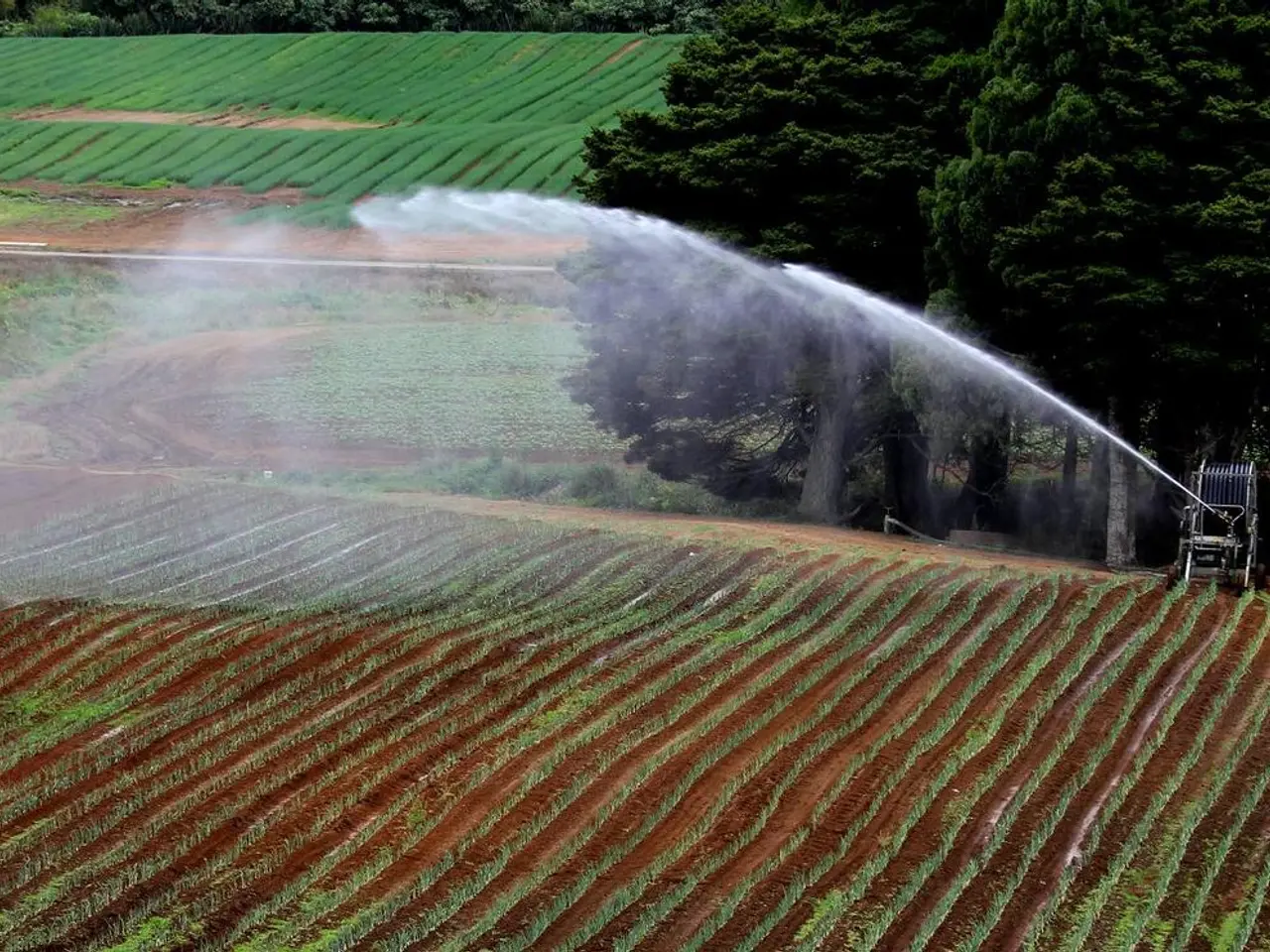Pondering the agricultural dilemma beyond traditional economic viewpoints is necessary.
In the heart of France, a contentious agricultural law has ignited a passionate debate. The Duplomb Law, passed by the French Parliament in July 2025, aims to simplify farming practices by lifting certain environmental regulations. However, its provisions on pesticide use and large-scale irrigation projects have sparked a major controversy, with concerns over public health, environmental protection, and national security.
A petition launched by 23-year-old student Eléonore Pattery has garnered over 1.2 million signatures, making it the first citizen petition of its kind to reach such numbers in France. The petition criticises the law for posing a serious health and environmental risk, describing it as a "scientific, ethical, environmental and public health aberration."
At the core of the debate is the question of sustainable agriculture. Supporters, including major farming lobbies FNSEA and Jeunes Agriculteurs, argue that the law reduces red tape and helps farmers' livelihoods. Opponents, including left-wing farmer unions, environmentalists, and cancer prevention groups, warn that the law's pesticide provisions will increase exposure to toxic neonicotinoids, known for their cancer and neurological risks.
The French League Against Cancer specifically warned about increased cancer risks due to pesticides reintroduced by the law. Environmental contamination is a major concern since only about 5% of applied neonicotinoids are absorbed by crops, with the rest leaching into water and soil, leading to widespread exposure.
The Duplomb Law has highlighted deep divisions about what sustainable farming should entail in France today. The petition calls for a citizen consultation of health, agriculture, ecology, and legal actors, reflecting a growing desire for public involvement in agricultural policy.
Moreover, the reliance on foreign resources for agriculture is being scrutinised in the context of national security. The uncertainty of the world has brought into focus the potential risks of a trajectory that relies on imported resources for agriculture. Industrial agriculture's trajectory, which makes nations dependent on foreign countries for resources, is being questioned.
Agriculture is at the heart of issues such as chronic diseases (cancer, diabetes, obesity, cardiovascular diseases, etc.). Industrial agriculture is reliant on nitrogen fertilizers derived from Russian natural gas and fossil fuels imported from America or the Middle East. These economic principles are based on efficiency, but rarely consider health, environment, equity, or security.
In this complex debate, Eleonore Pattery, at 23 years old, embodies discernment. Her petition, which calls for a more sustainable and equitable approach to agriculture, has resonated with a wide audience, reflecting a growing awareness and concern about the impact of industrial agriculture on public health, the environment, and national security.
References:
[1] Le Monde (2025). La loi Duplomb, une controverse sur l'agriculture durable. [Online] Available at: https://www.lemonde.fr/pixels/article/2025/07/15/la-loi-duplomb-une-controverse-sur-l-agriculture-durable_6100492_4432480.html
[2] France Info (2025). La pétition contre la loi Duplomb dépasse les 1 million de signatures. [Online] Available at: https://www.francetvinfo.fr/societe/loi-duplomb/la-petition-contre-la-loi-duplomb-depasse-les-1-million-de-signatures_3386850.html
[3] Greenpeace (2025). La loi Duplomb, un danger pour l'environnement et la santé. [Online] Available at: https://www.greenpeace.fr/france/actu/2025/07/loi-duplomb-danger-environnement-sante
[4] Canceropôle Grand-Est (2025). La loi Duplomb, un risque accru pour les cancers liés aux pesticides. [Online] Available at: https://www.canceropole-grandest.fr/actualites/loi-duplomb-risque-accru-cancers-li%C3%A9s-aux-pesticides
- The Duplomb Law, a contentious agricultural law in France, has ignited a heated debate over sustainable farming practices, public health, and environmental protection.
- The law, passed in July 2025, has been criticized by 23-year-old student Eléonore Pattery and others who view it as a "scientific, ethical, environmental and public health aberration."
- The law's provisions on pesticide use and large-scale irrigation project have raised concerns, with opponents warning of increased exposure to toxic neonicotinoids and their cancer and neurological risks.
- The French League Against Cancer specifically warns about increased cancer risks due to pesticides reintroduced by the Duplomb Law.
- Industrial agriculture, which relies on imported resources, is being questioned in terms of national security, particularly given the uncertainty of the world.
- The petition launched by Eléonore Pattery calls for a citizen consultation of health, agriculture, ecology, and legal actors, reflecting a growing desire for public involvement in agricultural policy.
- The reliance on foreign resources for agriculture is being scrutinized, as agriculture is at the heart of issues such as chronic diseases like cancer, diabetes, obesity, and cardiovascular diseases.
- Eléonore Pattery embodies discernment, as her petition for a more sustainable and equitable approach to agriculture has resonated with a wide audience, reflecting a growing awareness and concern about the impact of industrial agriculture on public health, the environment, and national security.




